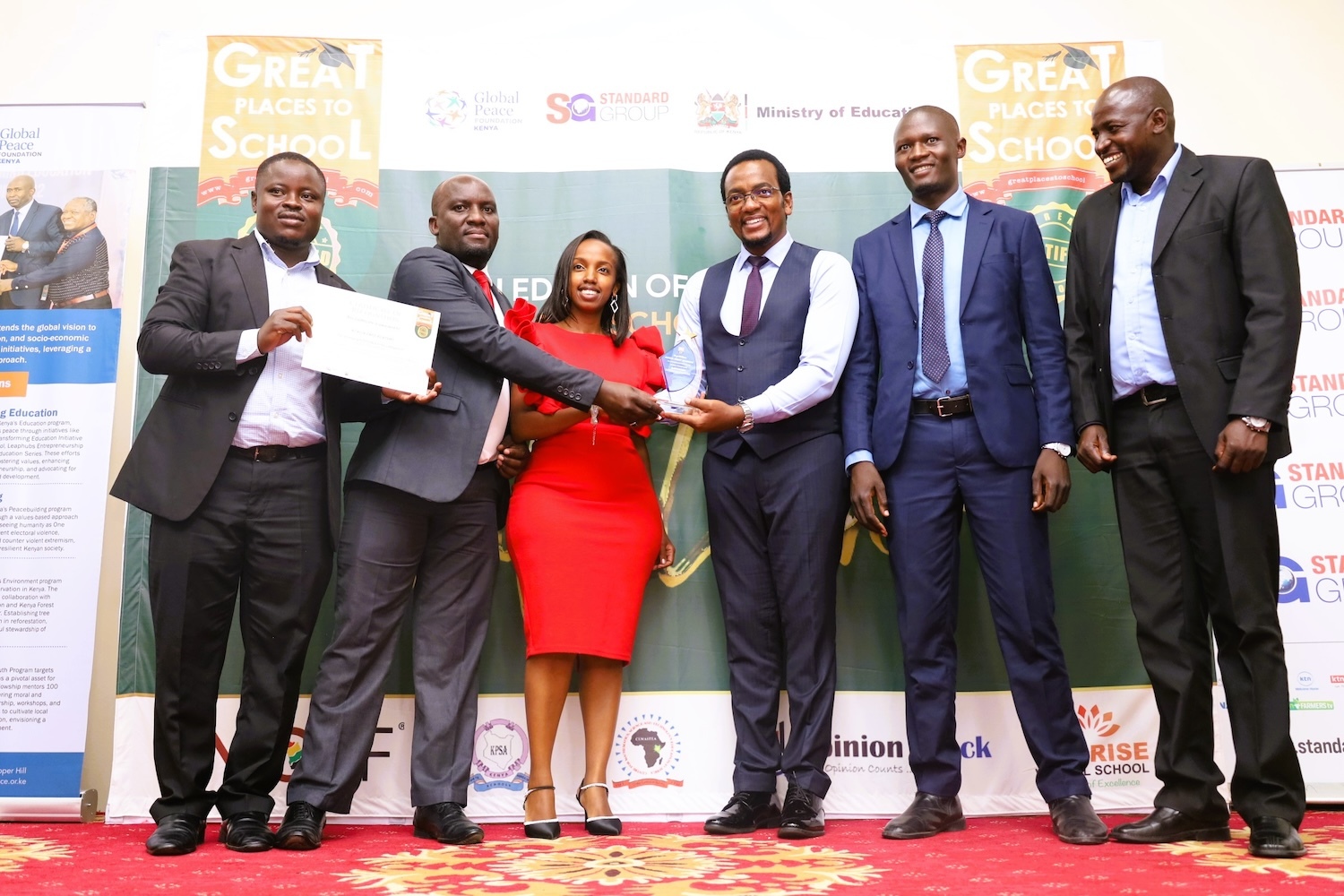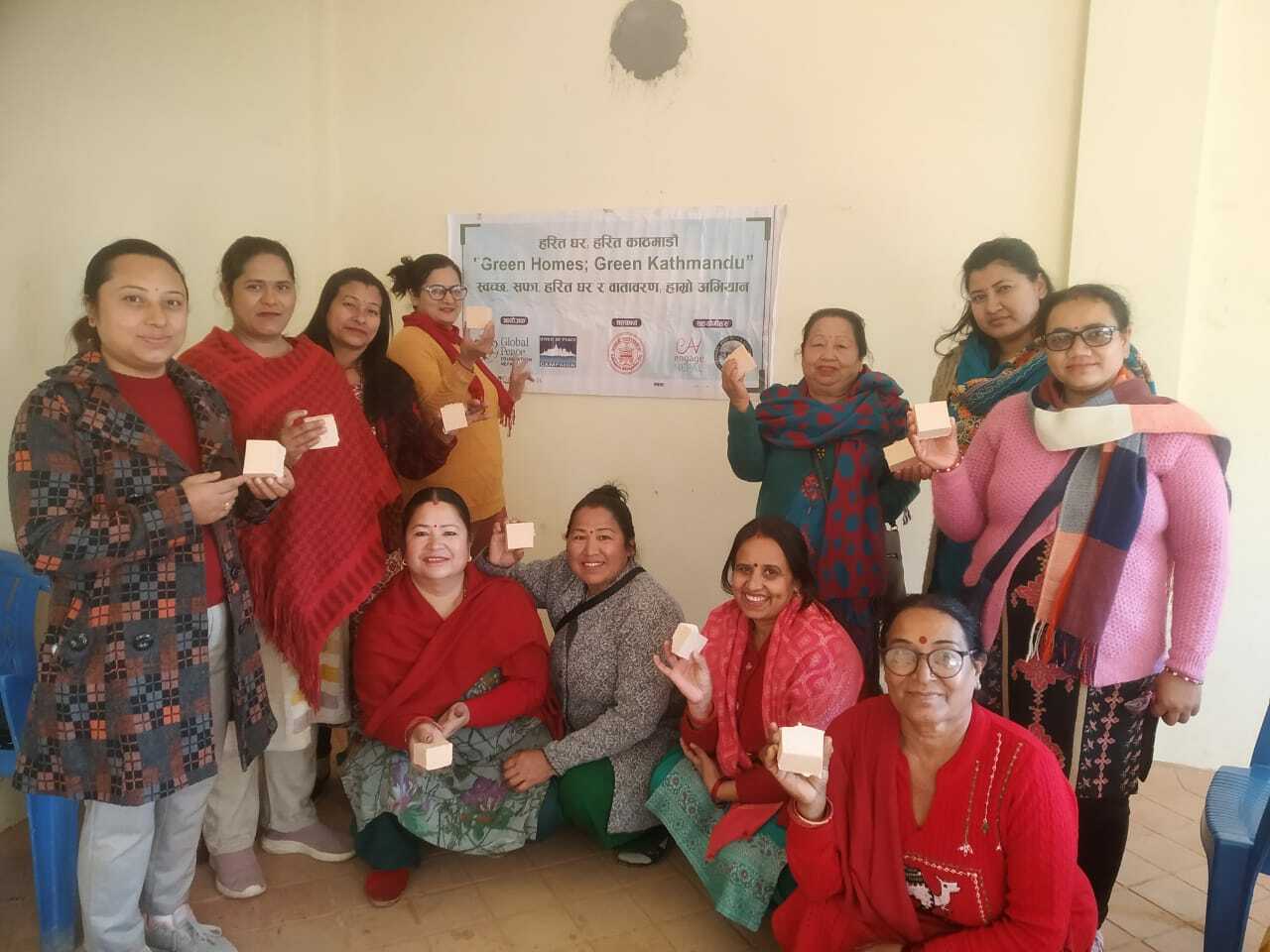Global Peace Foundation partner Co-Operation Ireland began the second day of the Peace Learning Program on February 25 with presentations by representatives Alan Largey (Program Director) and Barry Fennel (Project Manager). Established in 1979, Co-Operation Ireland has worked to encourage and promote interaction, dialogue, and practical collaboration within Northern Ireland and between Northern Ireland and the Republic of Ireland.
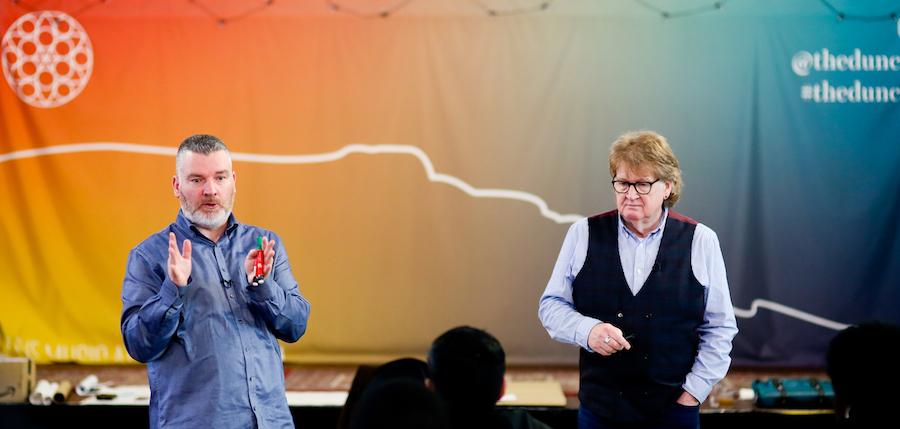
Barry Fennel (left) and Alan Largey (right) from Co-Operation Ireland describe methods of peacebuilding at Belfast workshop /Photo by Paul Moane
Before delving into the history of the “The Troubles,” an ethno-nationalist conflict in Northern Ireland during the late 20th century, Barry and Alan spoke on the processes that communities and nations must go through to obtain and maintain peace. Alan emphasized the importance of conversation and the role it plays in peacebuilding saying, “Any sort of process of working towards peace or reconciliation involves conversation.” He stated that if this dialogue were to hold value, it would require good intentions and respect from all involved parties. Barry emphasized the importance of understanding when it comes to creating peace and conversation, “How can you say you understand a person if you don’t even know them?”
Alan continued by addressing the origin of “The Troubles,” saying how important context is in these peacebuilding efforts. “The Troubles” were a very interesting case and when asked about the origin, Barry responded, “How did it start? No idea. The Troubles is the most researched conflict in the world, there are a vast amount of PhDs on the subject, yet we do not know how it happened. The conflict has so many layers. The peace we are now in is equally complex.”
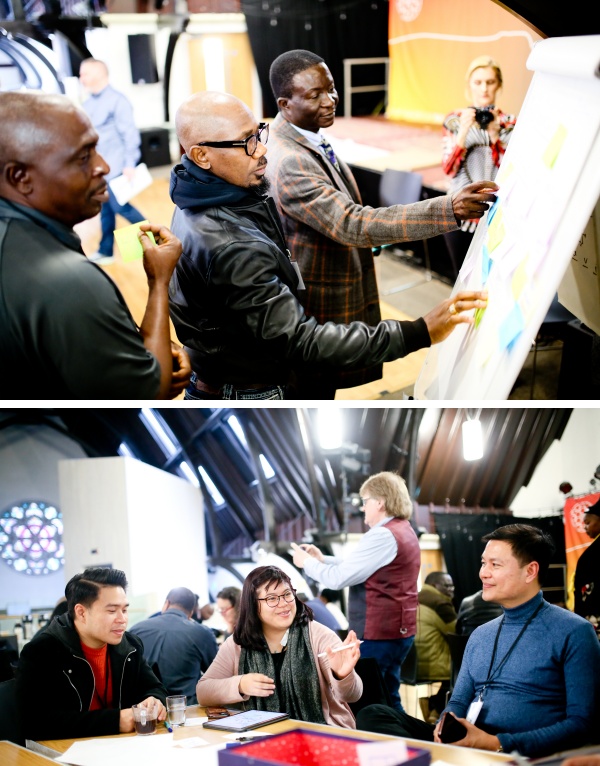
International leaders participate in community-driven peacebuilding workshop /Photos by Paul Moane
Barry and Alan led discussion towards the 4 stages of peace:
- Peacekeeping
- Peacemaking
- Peacebuilding
- Peace sharing
Each delegate was asked to write and share what stage of peace they believe their own nation was currently in. When the results were displayed, the majority of people were convinced that their nations have yet to reach the peacebuilding stage. Delegates of the same nation believed they were in different stages of peace, perceiving the current condition differently than their colleagues. Building off this topic of peace, Barry and Alan introduced the multiverse concept through a picture of a pig. They described how different members of the community all view this animal differently and they have their own definition for it, i.e. a little child views it as a cute creature, a butcher sees it as a business, or a vet can see it as a patient. Barry talked about how this correlates with everything we see in the world today. Each issue or topic is perceived differently from one another depending on one’s stance and beliefs.
Barry and Alan went on to touch upon the 3 Domains of Communication:
- Personal domain
- Domain of production
- Domain of reflection
Delegates were asked to look at what domains they communicate in when addressing the topics of peace, as well as consider the domains the opposite side might use.
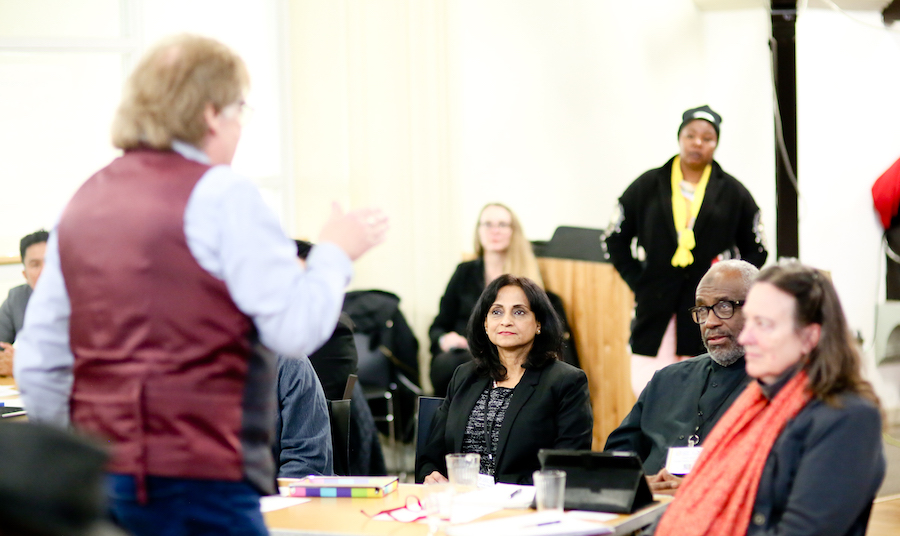
Alan Largey shares peacebuilding practices at Peace Learning workshop in Belfast /Photo by Paul Moane
The second half of the day was focused on pease-based discussions. Delegates formed groups according to the nation they were representing and were asked: What is peace? What does this word mean to you? What does it look like in your context? Each nation shared a few key definitions they had when it comes to peace. The nations all had similarities when it came to what a peaceful nation looks like. There is justice, love, respect, forgiveness, fundamental human rights, harmony, equality and inclusion, opportunity and education. However, when asked what these values specifically meant to each delegate, the answers were quite different. Each person had their own specific definition of what each of these things represented. This activity represented the process of achieving peace and the conversations that take place along that journey.
Building off this discussion of peace, Alan led the conversation into peacebuilding and the delegates continued to discuss the necessary tools for sustainable peace. Such tools that delegates believed were needed were things such as integration and cohesion programs, true justice performed throughout society, compromise, transparency, and accountability. Concluding the day, Alan added, “You can’t listen with a mouth full of words.” Which summed up today perfectly. Countless nations around the globe are all a part of this never-ending process of building and sharing peace. Powered by a will to understand and respect this conference is a promising indicator for what’s in store for these nations.
The program will continue through February 27, culminating in an International Peacebuilding Forum.

